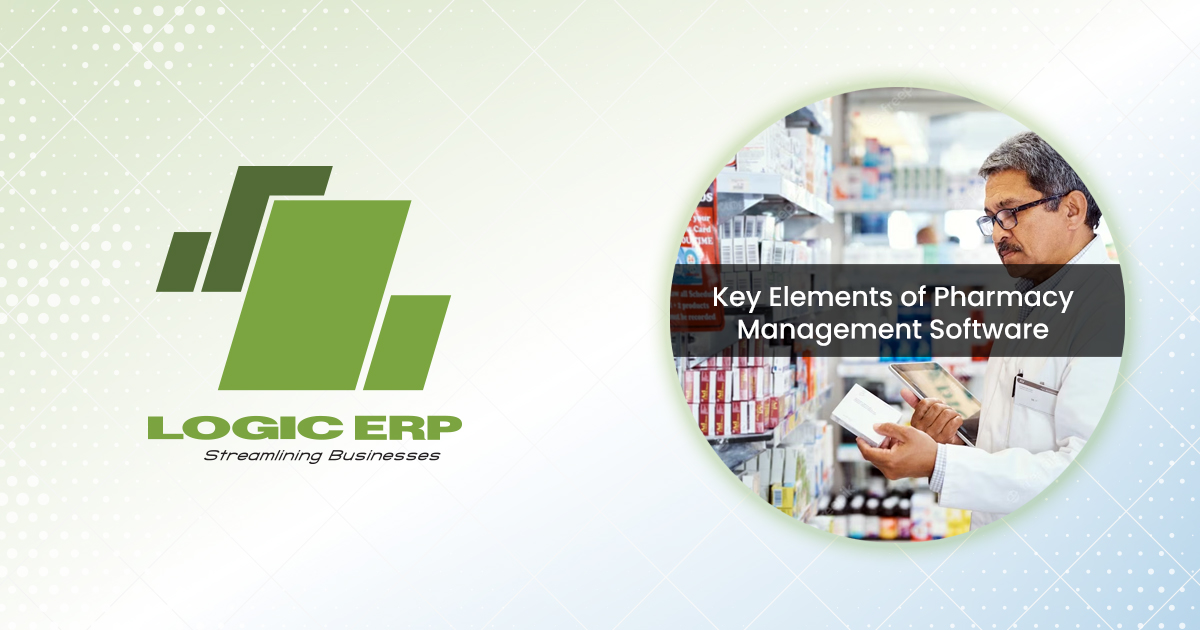

In the ever-evolving landscape of modern healthcare, the integration of technology has become a pivotal element in streamlining processes and enhancing efficiency. A prime example of this technological shift can be observed in the realm of pharmacy management. Pharmacy management software, often referred to as pharmacy software, has emerged as a comprehensive system designed to meticulously record and manage all operations within a pharmacy setting. This sophisticated software not only facilitates data storage but also orchestrates the entire system, regulates pharmaceutical utilization, and elevates customer satisfaction. In the current era of rapid technological advancement, pharmacy operators are presented with a golden opportunity to embrace this digital transformation and propel their businesses forward.
At its core, pharmacy software is meticulously crafted by software vendors to empower business owners in effectively managing various aspects of their pharmacy, including inventory, accounting, and the prudent selection of prescriptions based on comprehensive background data analysis. Embracing the capabilities of a robust pharmacy management system paves the way for complete digitization of pharmacy operations, fostering operational efficiency and facilitating the delivery of optimal patient care.
Unveiling the Fundamental Features of Pharmacy Management Software
Harnessing the power of a comprehensive pharmacy management software equipped with both fundamental and cutting-edge capabilities holds the key to managing all facets of pharmacy operations and bolstering overall profitability. In an era where patients sometimes opt to visit a pharmacy for routine medications rather than seeking a doctor’s consultation, the advanced features of pharmacy software can play a pivotal role by suggesting medications based on parameters such as sodium concentrations for minor ailments.
1. Prescription Control: Enhancing Clarity and Accuracy
Prescriptions often present challenges due to their illegibility, causing confusion for patients and healthcare professionals alike. The introduction of pharmacy software alleviates this concern by digitizing prescriptions and safeguarding them for future reference. Pharmacists are empowered to maintain clear and accurate records, eliminating the risk of misinterpreting prescriptions and ensuring patients receive the right medications.
2. Alerts & SMS: Strengthening Customer Engagement
Pharmacy management systems offer a novel avenue for improved customer engagement through alerts and SMS notifications. Pharmacists can receive timely alerts about upcoming medication needs or impending medication expirations, enabling proactive management. Leveraging SMS notifications, pharmacies can remind patients to refill their prescriptions, fostering stronger customer relationships and bolstering adherence to medication regimens.
Moreover, patients can conveniently respond to these notifications, requesting refills, which pharmacists can then efficiently process and dispatch to the patients’ convenience.
3. Commission Management for Doctors and MRs: Ensuring Transparency
Commission management stands as a pivotal component within pharmacy software, particularly in maintaining transparency regarding prescriptions from specific doctors or medical representatives. The software seamlessly tracks and calculates earned commissions for each prescription and medication sold, ensuring equitable compensation and reinforcing professional relationships.
4. Robust Reporting: Insights for Informed Decisions
Businesses thrive on informed decisions, and robust reporting capabilities are essential in achieving this goal. Pharmacists interact with diverse stakeholders daily, including sales representatives, patients, and healthcare providers. The wealth of interactions can be challenging to remember comprehensively. Pharmacy software bridges this gap by systematically storing data related to these interactions, providing a foundation for data-driven growth strategies. These insightful reports shed light on areas of success and opportunities for improvement, fostering continuous enhancement.
5. Efficient Re-Order Management: Optimizing Inventory
Efficient inventory management software is crucial in the pharmacy domain. Identifying optimal reorder points, restocking timelines, and high-performing inventory items are critical for streamlined operations. Pharmacy software excels in this aspect by triggering alerts whenever stock levels dip below defined thresholds. Pharmacists can specify minimum and maximum stock levels, and the software’s algorithm not only alerts for reorders but also suggests the most cost-effective purchases from nearby suppliers, maximizing cost savings.
6. Expiry Control: Minimizing Losses
Pharmaceuticals nearing their expiration date pose a significant challenge for pharmacies. Often purchased in bulk with varying expiration dates, these medications demand meticulous tracking. Pharmacy management systems offer a solution through advanced expiry management capabilities. The software proactively notifies pharmacists of impending expirations, prompting them to either sell or return medications to suppliers. This approach minimizes wastage, mitigates losses, and optimizes inventory turnover.
7. Digital Convenience: Adapting to New Norms
As the world embraces new standards of social distancing, the convenience of digital transactions gains prominence. Pharmacy management software plays a pivotal role by providing a platform for digital payments, catering to customers’ preferences for contactless transactions. By embracing this digital resource, pharmacies prioritize customer health and safety while embracing modern convenience.
In Conclusion: The Path Forward with Pharma Management Software
In conclusion, the era of pharmacy management software has dawned, promising revolutionary changes in the pharmaceutical landscape. This transformative technology empowers pharmacists to operate at the intersection of healthcare and technology, enhancing patient care and optimizing business operations. Among the plethora of options available, LOGIC ERP emerges as a prominent contender, offering an array of cutting-edge features poised to drive rapid expansion within pharmaceutical enterprises. As the industry navigates the evolving landscape, the integration of pharmacy management software stands as a beacon of innovation and efficiency, poised to redefine the way pharmacies deliver care and thrive in the digital age.

